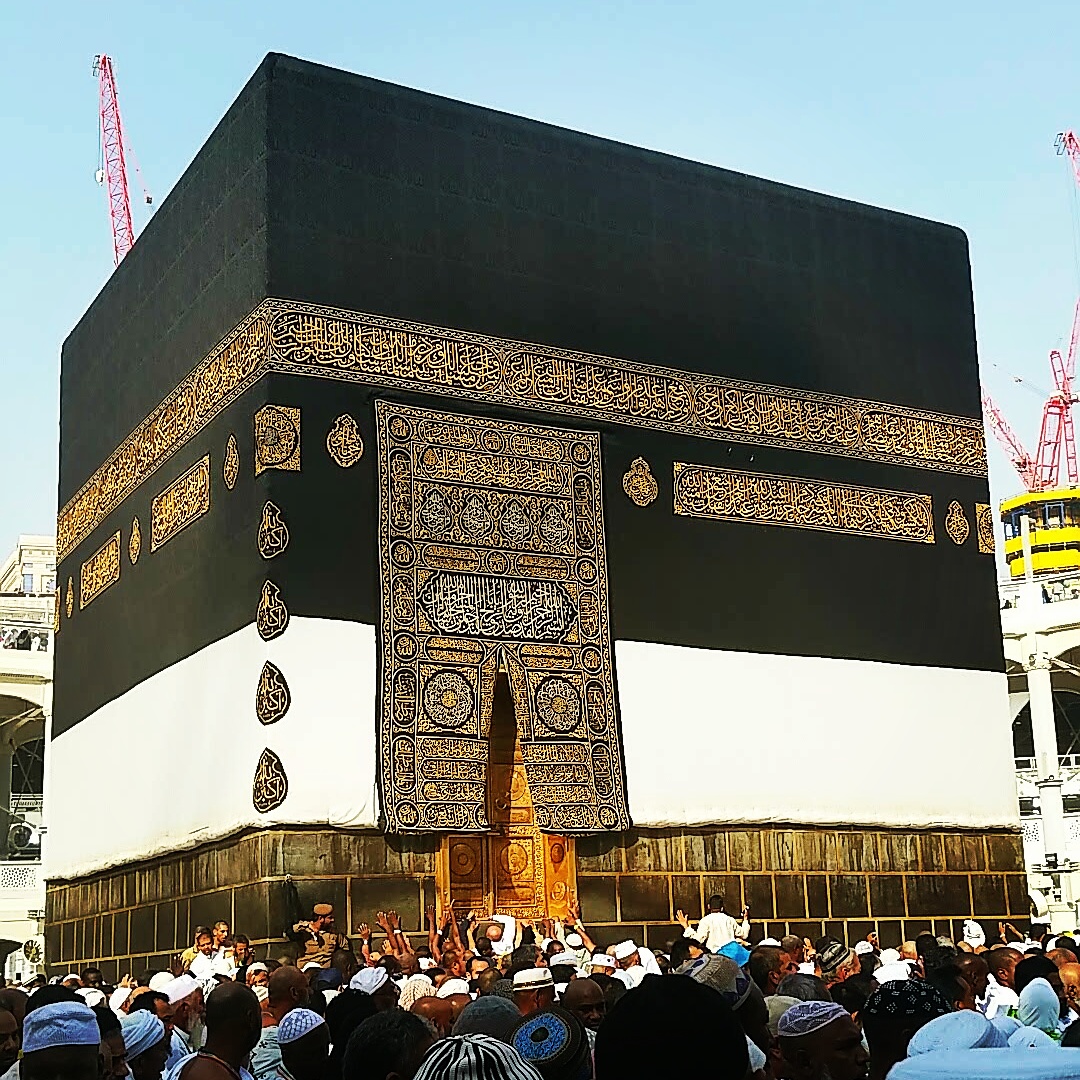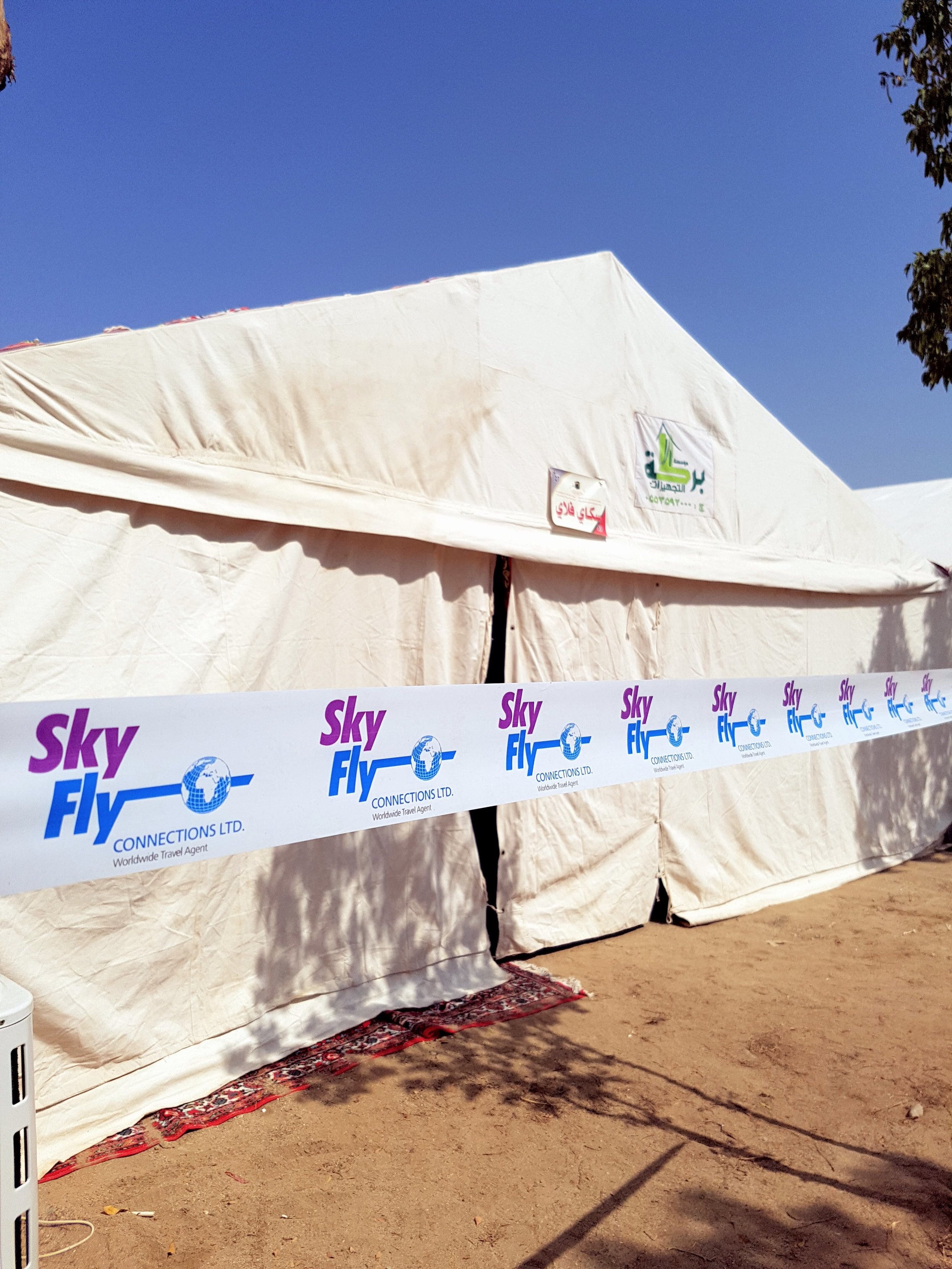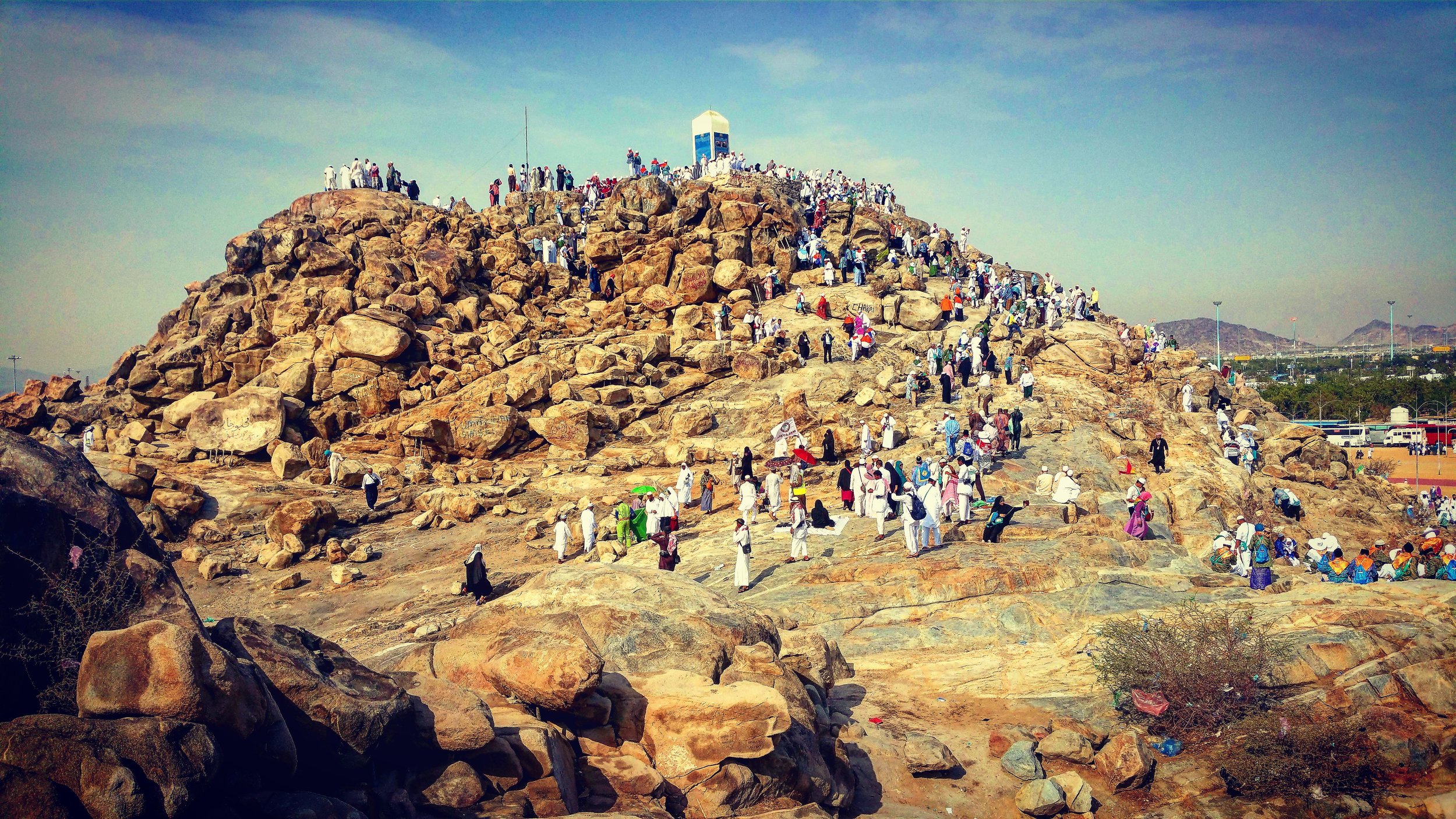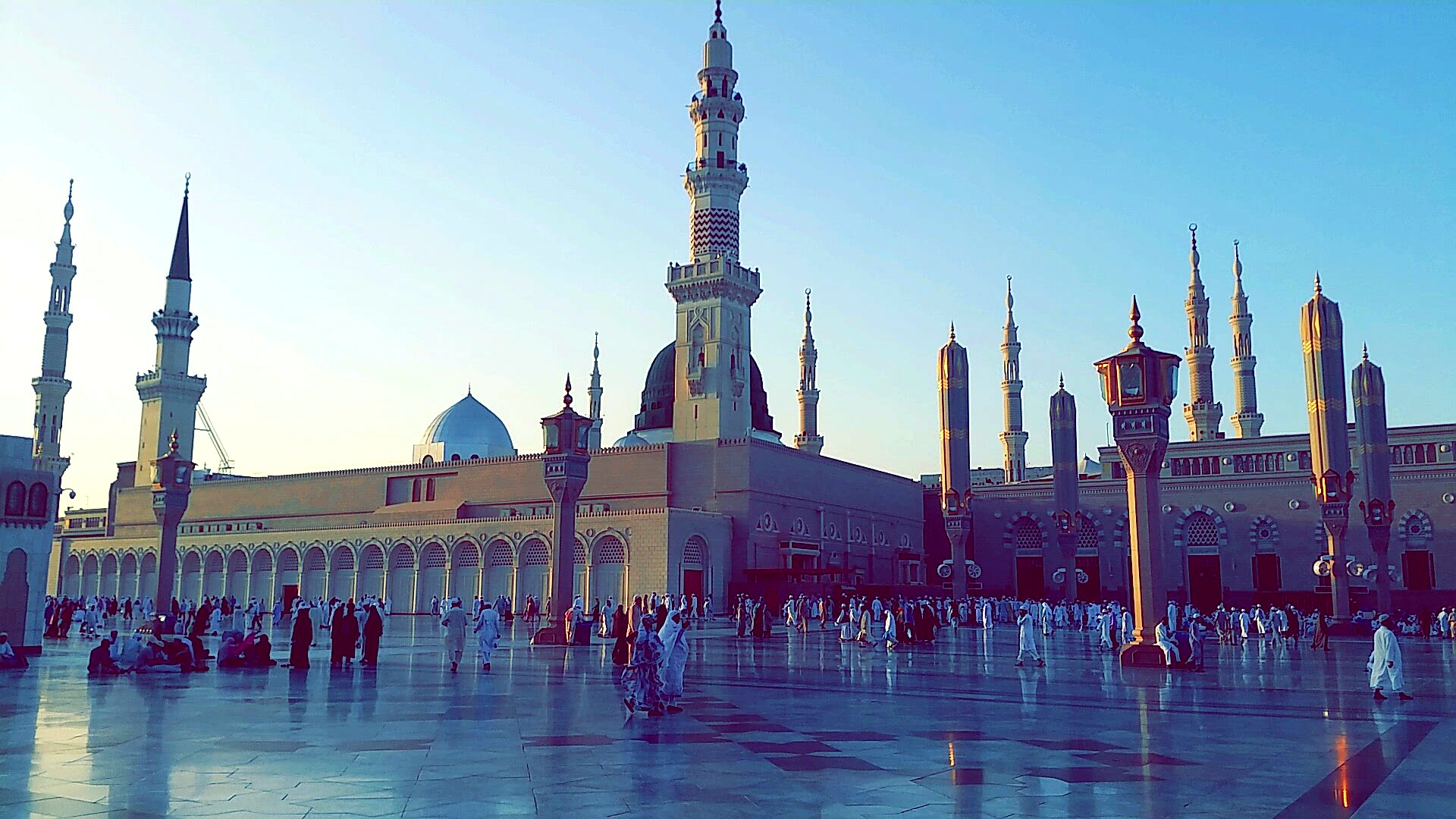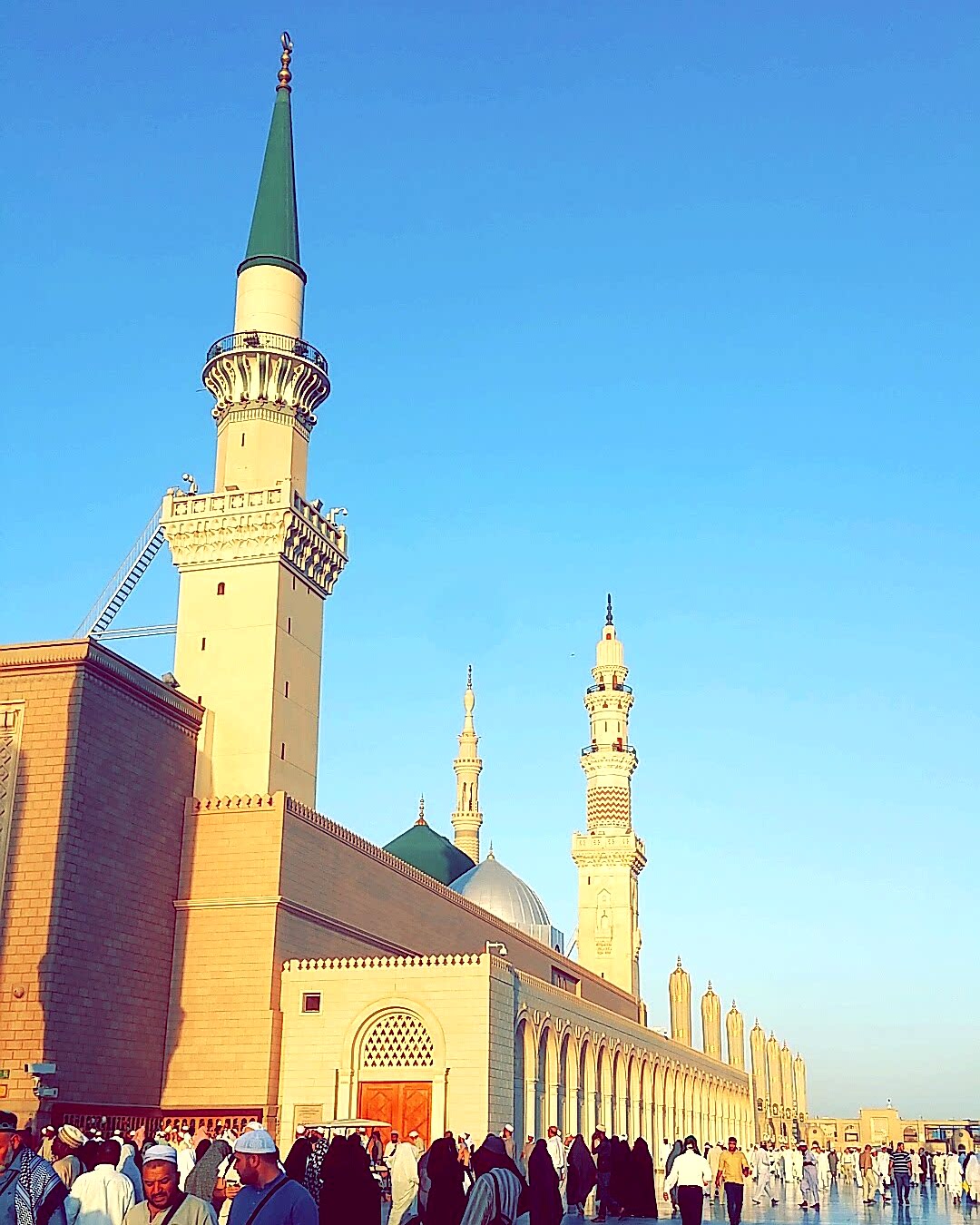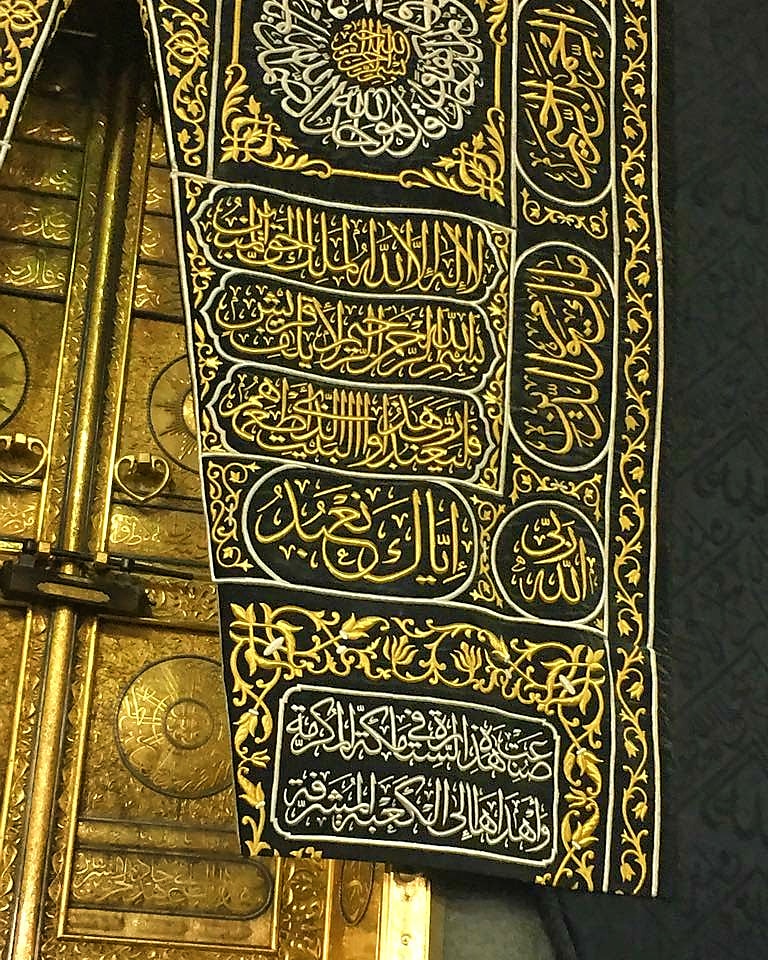Hajj 2020 Dates
Movement to Mina will occur on the evening of
Tuesday, 28th July
The Day of Hajj is expected to be on,
Thursday, 30th July
Completion of all Hajj rituals by,
Sunday, 2nd August
Dates may vary.
£5700
Hajj 2020 Non-Shifting Package includes:
Non-stop direct flights from the UK to Saudi Arabia
Hajj Visa
Return Airline Ticket
UAO Charges
Qurbani
Ziarat
Special Services:
Fully air-conditioned tents in Mina and Arafah
Complementary Services:
All daily meals
Laundry services
2GB Sim Card *subject to availability
Private luxury buses
Guidance by Scholars
Ehrams
Sky Fly are proud to announce that we have obtained the services of two hotels, close to Haram Sharif in both Makkah and Madinah. Click here to find out more. Scroll down to Book Now.
How to book
Take the first step towards your journey of a lifetime and book with Sky Fly now. Our all-inclusive direct-flight packages are now available and are strictly on a first-come first-serve basis. Our hotels in both Makkah and Madinah are near to Al-Masjid Al-Haram and Al-Masjid An-Nabawi respectively. In addition to this, we are delighted to offer complimentary services such as private luxury buses and WiFi. Click on Book Now to begin your journey of a lifetime:
Alternate ways to book:
Fill out the booking form below and email it to skyfly@hotmail.co.uk along with your full name, contact number and address. Please type 'Hajj 2020' in the subject line. One of our people will be in touch with you as soon as possible.
Print off the booking form, fill it in with the relevant details and bring it to our office located at; Airlines House, 66 Lumb Lane, Bradford, BD8 7QZ.
Alternatively, please call one of our people on (+44) 127 473 3168 and we will be more than happy to discuss any queries you may have. You can also email us at skyfly@hotmail.co.uk or send us a message by clicking on the "Message Us" button found on the Contact Us page.
What is Hajj?
Hajj, sometimes spelt as Haj, is the annual pilgrimage to Makkah that all Muslims are expected to make at least once in their lifetime. Hajj is the fifth pillar of Islam - the others are: Shahadah (declaration of faith); Salat (daily prayer); Zakat (giving of Alms); Sawm (fasting in Ramadan).
Who should go on the Hajj pilgrimage?
Hajj should be undertaken by Muslim adults at least once in their lifetime. If you are considering going on Hajj, you should be of sound mind. You must also be physically and financially capable to perform the Hajj pilgrimage.
When is Hajj?
The pilgrimage must take place during the last month of the Islamic calendar known as Dhu al Hijjah. The rites of Hajj are performed from the 8th - 12th of Dhu al Hijjah. As the Islamic calendar is based on the lunar year, the dates of Hajj change each year on the Gregorian calendar. Typically, Hajj is 10 to 11 days earlier than the preceding year.
How many people go on Hajj?
Every year, two to three million people from across the world gather in Makkah for the Hajj pilgrimage. It is the largest single gathering of people on the planet.
How did Hajj start?
The rites performed at Hajj today were established by the Prophet Muhammad (sallallahu alaihi wa sallam) but, based on the Qur’an, they can be traced back to the Prophet Ibrahim (alaihis salaam) also referred to in English as Abraham.
Muslims believe that Ibrahim (alaihis salaam) was ordered by Allah (SWT) to leave his wife Hajar and his son Ismail alone in the desert of ancient Makkah. In search of water, Hajar desperately ran seven times between the two hills of Safa and Marwah but found none. Returning in despair to Ismail, she saw the baby scratching the ground with his leg and a water fountain sprang forth at the site.
This is the Well of Zam Zam in the al-Masjid al-Haram in Makkah. Pilgrims visit the well while performing Hajj or the Umrah pilgrimage to drink its blessed water.
What are the rites of Hajj?
The main rituals of the Hajj pilgrimage are:
Ihram: When they arrive in Makkah, pilgrims enter the state of ihram (purity) for the Hajj pilgrimage. Men must wear the ihram garments consisting of two white, seamless sheets wrapped around the body, and sandals. As well as purity, this clothing symbolises equality and unity as there are no visible reminders of class, wealth, status or culture. Requirements for women are less strict and they usually dress in white with only faces and hands uncovered.
While in the state of ihram, pilgrims must – amongst other things - not cut their nails or hair, not engage in sexual activity, argue or fight.
Tawaf: Each person walks counter-clockwise seven times around the Ka'aba (the cube-shaped building and the direction of prayer for Muslims everywhere) in Masjid Al-Haram. The Ka’aba was built by Ibrahim (alaihis salaam) and is the most sacred site in Islam.
Al-Safa and Al-Marwah: Pilgrims run seven times between the mountains of Al-Safa and Al-Marwah as Hajar did during her search for water.
Mount Arafat: Pilgrims go to the plains of Mount Arafat, where the Prophet Muhammad (sallallahu alaihi wa sallam) gave his last sermon, to stand in vigil.
Stoning the Devil: After Arafat, they move to Muzdalfah and then to Mina to perform a symbolic stoning ritual in which they throw pebbles at three walls known as Jamarat. This symbolises how the devil tried to mislead Ibrahim (alaihis salaam) from following Allah but was fought off when the prophet threw stones at him on three occasions.
Eid ul Adha: The tenth day of the month of Dhu al-Hijja marks the start of the three-day festival of Eid ul Adha (the Feast of Sacrifice). The pilgrims perform the ritual of animal sacrifice (Qurbani) and continue with other rites to complete their Hajj.
Qurbani: Qurbani, or Udiyah as it known in Arabic, commemorates the sacrifice Ibrahim (alaihis salaam) was willing to perform of his son Ismail (alaihis salaam) for Allah, who spared his son by sending down a ram to take his place.
What is the difference between Hajj and Umrah?
Pilgrims can go to Makkah to perform the rituals at any other time of the year. This pilgrimage is known as Umrah and, unlike Hajj which takes place on fixed Islamic dates, is not obligatory.


